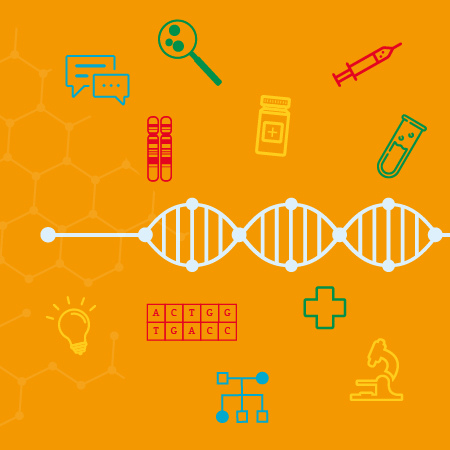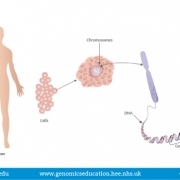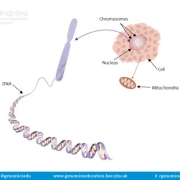Definition
Tightly packaged bundles of DNA plus associated proteins. Nearly all human cells have a set of 46 chromosomes, identified as 23 pairs; 22 pairs are autosomes with the 23rd pair the sex chromosomes.
Use in clinical context
Chromosomes contain nearly all the DNA in a human cell, with the exception of DNA found in mitochondria. Changes to the chromosomes can lead to a variety of conditions. The largest changes are trisomies, where there is an additional copy of one of the chromosomes, as seen in Down syndrome (trisomy 21), Edward’s syndrome (trisomy 18), and Patau’s syndrome (trisomy 13). There can also be changes to the structure of the chromosomes where, for example, parts of chromosomes are missing (deletions) or moved from one chromosome to another (translocation). An organism’s complement of chromosomes can be visualised via a karyotype.
Related terms
Aneuploidy | Autosomes | Deoxyribonucleic acid (DNA) | Homologous chromosomes | Karyotype | Protein | Sex chromosome





